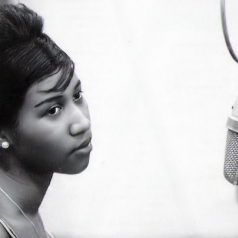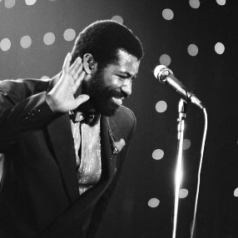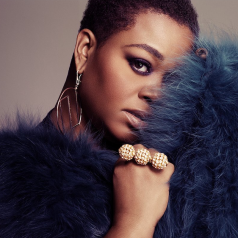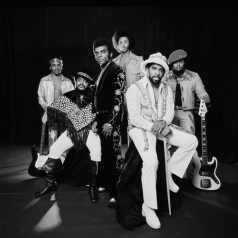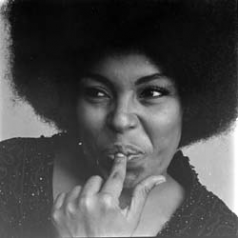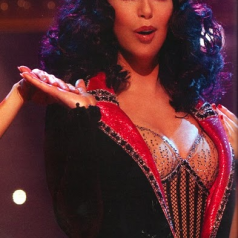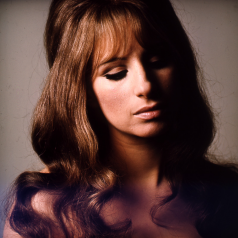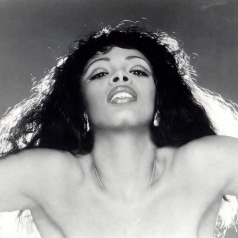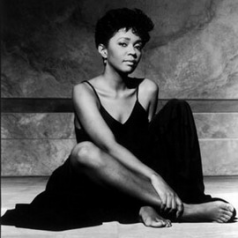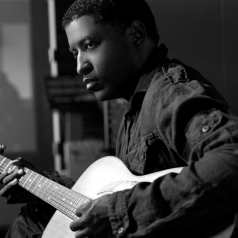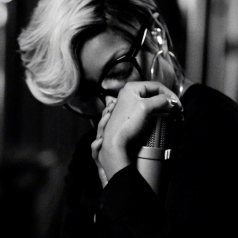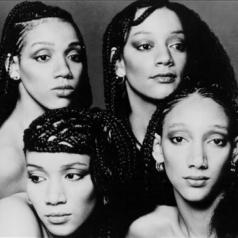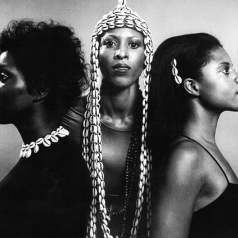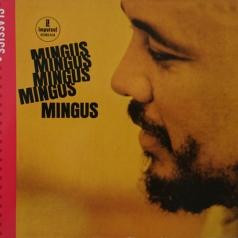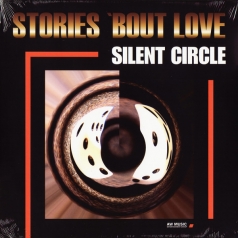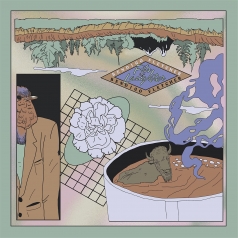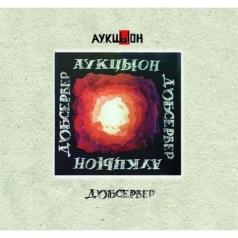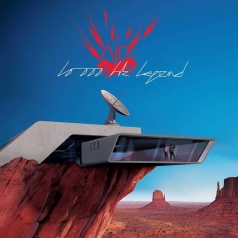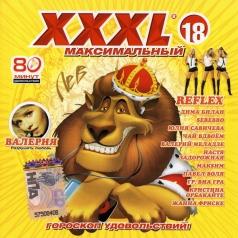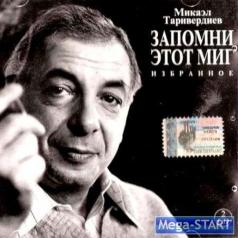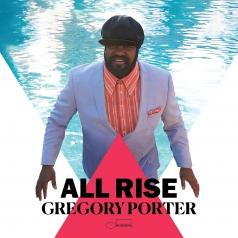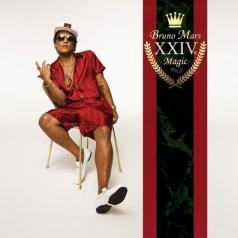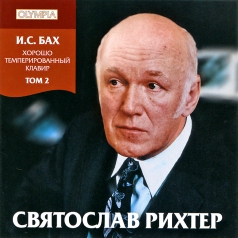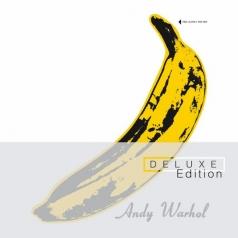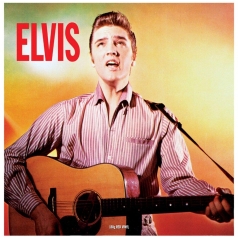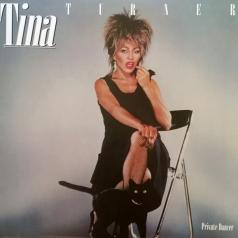- Главная
- /
- Patti Labelle
Patti Labelle

Купить Patti Labelle (Патти Лабелль) на CD компакт-дисках
Patti LaBelle (born Patricia Louise Holte; May 24, 1944) is an American singer and actress. She fronted two groups, Patti LaBelle and the Bluebelles, which received minor success on the pop charts in the 1960s, and Labelle, which received acclaim and a mainstream breakthrough in 1974 with their song "Lady Marmalade". She went on to have a solo recording career, earning another U.S. #1 single in 1986 with "On My Own", a duet with Michael McDonald. She is renowned for her passionate stage performances, wide vocal range and distinctive high-octave belting. Her biography, Don't Block the Blessings, remained at the top of The New York Times best-seller list for several weeks. She has sold over 50 million records worldwide. LaBelle has been called the Godmother of Soul, the High Priestess of Good Vibrations and the Queen Of Rock & Soul. ==Early life and career== ===Early years=== LaBelle was born "Patricia Louise Holte" in Philadelphia, Pennsylvania, the daughter of Henry Holte, a railroad worker, and Bertha Robinson Holte, a housewife. The third of four sisters (and the fourth of five, the Holtes also had one son), Holte began singing at church at an earlier age. Though Holte enjoyed a happy childhood, she would later recount in her autobiography that she was sexually molested as a child. When Holte was twelve, her parents split up. Holte attended John Bartram High School in Philadelphia. During an audition for a school play, a teacher advised Holte to form a singing group. Holte, who was nicknamed "Patsy" by friends and family, formed her first girl group called the Ordettes in 1959. In 1960, when two of the original Ordettes left, Holte and fellow Ordette Sundray Tucker brought in singers Nona Hendryx and Sarah Dash, from a recently defunct rival group, the Del Capris. When Tucker's family made Sandra leave the group, she was replaced by hometown friend Cindy Birdsong. With her mother's blessings, Patti left high school to tour with the Ordettes. The group was managed by Bernard Montague and toured from local nightclubs to honky tonks and truck stops in the Philadelphia area. During an audition with Newtown Records, the Ordettes almost didn't get a recording contract because Holte, who was the lead singer was considered "too plain, too dark and unattractive" until she sang for him. Afterwards, he suggested a name change for Holte. Add to the irony after his initial disappointment of Holt, the surname LaBelle was French for "the beautiful". Signing them in 1961, the boss also changed the name of the group to The Bluebelles, named initially after a Newtown subsidiary (Bluebelle Records), which later led to threats of a lawsuit over another girl group's manager. The name was altered to ''Patti LaBelle and Her Bluebelles'' in 1963 and changed slightly to ''Patti LaBelle and The Bluebelles'' two years later. ===Group career: 1962 - 1977=== The Bluebelles' first single, "I Sold My Heart to the Junkman", was actually recorded by The Starlets and was released as a Bluebelles single due to contract obligations the Starlets had with their own label, Pam Records. Credited to Patti's group, the song peaked at number fifteen on the Billboard Hot 100 in 1962. Going out on the road, the group became a successful draw on the chitlin' circuit, mainly earning national fame at The Apollo Theater where they became "Apollo Sweethearts". The group enjoyed a modestly successful recording career, which included top 40 recordings such as their gospel-styled doo-wop renditions of traditional songs such as "You'll Never Walk Alone" and "Danny Boy". In 1963, their ballad "Down the Aisle (The Wedding Song)" became a top 40 hit. In 1965, after recording for Newtown and Cameo-Parkway, the group landed a stint at Atlantic Records gaining some modest success recording Judy Garland's "Over the Rainbow", a song LaBelle would record as a soloist over a decade later and which later became a concert staple in LaBelle's shows since. The group also recorded the modest pop hit, "All or Nothing". The group also sang background for Wilson Pickett's hit "634-5789 (Soulsville U.S.A.)" while with Atlantic. In 1967, Cindy Birdsong shocked the group when she left to replace Florence Ballard of The Supremes. The abrupt exit caused friction between the group members and LaBelle wouldn't speak to Birdsong again for nearly 20 years. During the late 1960s, the Bluebelles toured England where they had a local following. Elton John met LaBelle in the mid-1960s when he and his group Bluesology played background for the Bluebelles during their UK gigs. In 1970, the Bluebelles were dropped from Atlantic and also lost their manager Montague,who had signed Philadelphia's "Delfonics". The group almost signed with DJ promoters Frankie Crocker and Herb Hamlett, but Hamlett left the industry for a law career, leaving the group to eventually hire Dusty Springfield's manager Vicki Wickham, she advised the group to revive their image and sound. Though LaBelle admitted having difficulty with the change, she eventually agreed after her two band mates, including Nona Hendryx, convinced her the move would bring popularity to the group. Returning to America the following year, they changed their name to Labelle and released their self-titled debut on Warner Bros. Records. The same year, they gained a cult following after opening for The Who and appearing as backup for Laura Nyro's accomplished album, ''Gonna Take a Miracle''. After releasing two more transitional albums, including 1972's ''Moon Shadow'' and 1973's ''Pressure Cookin''', which had the group recording more political affair including a famed remake of Gil Scott Heron's "The Revolution Will Not Be Televised". In 1973, the group was asked to change their look again, after discovering the success of glam rockers David Bowie and T-Rex, to glammed-up wardrobe. In time, the group's trademark wear included pieces of silver (LaBelle herself began wearing silver-haired wigs and knee-high silver boots). In September 1974, after two weeks in New Orleans, Labelle released their landmark album, ''Nightbirds'', which successfully mixed glam rock and soul with funk elements. Their biggest hit, "Lady Marmalade", became their very first number-one hit, and the group went on a successful national tour that started with a rave performance at the Metropolitan Opera House, where they became the first contemporary pop group to open there and the first African American group to perform there. The group advised fans to "wear something silver" during the famed event. In 1975, Labelle became the first black vocal group to land a cover on ''Rolling Stone''. The group founded some commercial and critical success with the releases of rockier efforts such as ''Phoenix'' and ''Chameleon'', famed for the feminist funk classic, "Get You Somebody New" and Patti's magnum opus, a cover of Randy Edelman's rock ballad, "Isn't It a Shame", though it didn't match up with the success of ''Nightbirds''. After failing to come to terms with musical direction, the group agreed to split up in early 1977 for solo careers. ==Solo career== ===Early solo career: 1977 - 1982=== LaBelle released her self-titled debut in 1977 on Epic Records, which featured the top twenty R&B dance single, "Joy to Have Your Love" and the modestly-charted gospel ballad, "You Are My Friend", which she co-wrote and dedicated to her son. The album received critical acclaim but didn't give LaBelle any commercial success. Other albums such as 1978's ''Tasty'' 1979's ''It's Alright with Me'', 1980's ''Released'' and 1981's "The Spirit's in It", which included her now classic solo cover of her old Bluebelles single, "Somewhere Over the Rainbow", also failed to chart successfully. On July 21, 1979, she appeared at the Amandla Festival along with Bob Marley, Dick Gregory and Eddie Palmieri, among others. That same year, she cut a performance for Richard Pryor's ''Wanted'' concert film though her scenes were cut. In 1980, she scored a Dutch top twenty hit and a modest U.S. dance hit with "Release (The Tension)". Three years later, in 1982, LaBelle and singer Al Green participated in the revival of the successful Broadway play, "Your Arm's Too Short to Box with God". That same year she also appeared in a televised play that aired on PBS. That same year, she recorded the hit ballad, "The Best is Yet to Come", which she was featured on by Grover Washington, Jr. The song reached number fourteen on the R&B chart and garnered LaBelle her first solo Grammy Award nomination. ===Successful period: 1983 - 2000=== LaBelle didn't start to experience commercial solo success until 1983 when she released her first charted hit album, "I'm in Love Again", which featured LaBelle's first #1 R&B and top fifty pop hit with "If Only You Knew" and its top ten R&B follow-up, "Love, Need and Want You". The album became her first solo release to be certified gold. In 1984, LaBelle recorded the songs "New Attitude" and "Stir It Up" for the ''Beverly Hills Cop'' soundtrack. Both songs became mainstays on pop radio with "New Attitude" reaching the pop top 20. During this period, LaBelle began dressing as flamboyantly as she did during the Labelle days in an effort to carve out an original persona. LaBelle's appearances on ''Motown Returns to the Apollo'' and the Live Aid concerts of 1985 introduced her to a new audience. That same year, LaBelle was granted her first television special, which became highly rated, featuring Cyndi Lauper, Bill Cosby and Luther Vandross. LaBelle's popularity increased further in 1986 with the release of her best-selling album to date, ''Winner in You''. The album yielded her first solo #1, "On My Own" with pop balladeer Michael McDonald, the Top 40 Billboard Hot 100 hit, "Oh, People", the moderate R&B chart hit, "Kiss Away The Pain" and the Hot Dance Music/Club Play chart hit, "Something Special Is Gonna Happen Tonight." LaBelle scored a moderate R&B and pop chart hit with the Diane Warren ballad, "If You Asked Me To", in 1989. The song peaked at #10 on the Adult Contemporary and R&B charts. It was later covered by Céline Dion in 1992, with striking similarity in arrangement, key and vocal styling. Dion's version peaked at #1 on both the Pop & A/C charts. In an interview with the online magazine ''Monaco Revue'' Patti claimed racism in the music industry was responsible for the difference in record sales, and revealed that accepting this was the most difficult obstacle she had to face in her career. Featured off LaBelle's album, ''Be Yourself'', the album spawned a top ten single with the Prince-produced "Yo Mister". In 1991, LaBelle released the gold-selling ''Burnin' '' album, which helped her win her first Grammy Award -- tying with vocalist Lisa Fischer for Best R&B Female Vocal Performance. ''Burnin''' featured the top five R&B hits "Somebody Loves You Baby (You Know Who It Is)", "When You've Been Blessed (Feels Like Heaven)" and "Feels Like Another One". This album is also notable because it includes the first Labelle reunion recording with Sarah Dash and Nona Hendryx, singing on "Release Yourself". The trio reunited again as Labelle in 1995 for the recording of the dance song, "Turn It Out", which hit number-one on the dance singles chart. Success continued with subsequent albums like 1994's ''Gems'' (featuring the hit "The Right Kinda Lover"), 1997's ''Flame'' (featuring the hit "When You Talk About Love"), and 1998's ''Live One Night Only'' winning LaBelle her a second Grammy (this time, without tying). During this period, LaBelle had a recurring role as Adele Wayne (mother of Dwayne Wayne) in the NBC sitcom ''A Different World'' and also starred in her own sitcom, ''Out All Night'' playing a club owner and former R&B star named Chelsea Paige, which debuted in 1992 and canceled in 1993 after 19 episodes. In January 1995, La Belle performed at the Super Bowl XXIX halftime show, with Tony Bennett, Arturo Sandoval and the Miami Sound Machine, in a program entitled "Indiana Jones and the Temple of the Forbidden Eye", to promote the upcoming Disney theme park attraction. She also recorded a theme song for ''The Oprah Winfrey Show'' entitled "Get with the Program," which was used from 1996 to 1998 and led to the phrase "get with the program" becoming a catch phrase in pop culture. ===Later career and current work: 2000 - present=== In 2000, LaBelle released her final album for the MCA label. ''When a Woman Loves'' features a collection of ballads written entirely by songwriter Diane Warren. LaBelle also announced her divorce from her only husband, Armstead, who had been her manager for 30 years. Four years would pass before LaBelle released a new album under Island Def Jam with the album, ''Timeless Journey'', which saw LaBelle adding a modern hip-hop flavor to her brand of classic R&B. The album featured the modest hit "A New Day", which became a dance hit and also became her highest-charted album in nearly twenty years reaching number-sixteen on the Billboard 200. LaBelle's 2005 follow-up, a covers album, ''Classic Moments'', was released. Despite the modest success, LaBelle battled against Def Jam president Antonio "L.A." Reid over the album's promotion and abruptly left the label.{{cite web|title=PATTI LABELLE VS. ANTONIO 'LA' REID: Did mogul pull artists out of her all-star birthday celebration?|publisher=EURweb|url=http://www.eurweb.com/printable.cfm?id=22939|date=October 18, 2005}} In 2006, LaBelle issued her oft-promised gospel album on an independent label titled ''The Gospel According To Patti LaBelle'' was released. As a promotion, all copies sold at the retailer, Wal-Mart, contained a bonus track, "The Lord's Prayer". The album debuted at #86 on the Billboard 200, #17 on the R&B chart and peaked at #1 on the Gospel chart. A year later, LaBelle re-signed with Def Jam Records after Reid began re-negotiated terms with LaBelle. The new Def Jam release was her second holiday album called, ''Miss Patti's Christmas'', released in 2007. The year 2008 saw Patti LaBelle reunite with Nona Hendryx and Sarah Dash to release their first full album in thirty-two years with the Verve Records release, ''Back to Now''. The collection blended newly recorded tracks with songs recorded before the initial break-up of Labelle. "Superlover", a single from the album, peaked at number sixty-seven on the R&B chart in early 2009. Musician Wyclef Jean also lent his songwriting and producing talents to the ultra-contemporary track, "Roll Out". Other producers involved in the album included superstar black rocker Lenny Kravitz, plus legendary classic Philadelphia soul producer/writers Kenny Gamble & Leon Huff. Patti also released a wig collection for Especially Yours, but this was discontinued in 2010. In June 2009 LaBelle was honored at New York's Harlem Apollo Theater after she was inducted to the Apollo Legends Hall of Fame by admirers such as pop stars Mariah Carey and Prince. After she was inducted, LaBelle said, "The Apollo is a national treasure, I'm overwhelmed and honored to be recognized on this stage." In 2010, LaBelle contributed to the soundtrack of the movie, ''film)|Cop Out'', with the song "Soul Brother", featuring a reunion with her "Stir It Up" producer Harold Faltermeyer. LaBelle is currently at work on a brand new album with Island Def Jam that will be scheduled for release this year. LaBelle's vocal styling has influenced a wide range of today's musical icons where Jennifer Hudson cited her as one of her overall biggest influences and inspiration. She has been listed by Rolling Stone magazine as one of The 100 Greatest Singers of All Time. LaBelle's songs have been included numerously in major films and television productions, her songs "It Took a long Time" and "System" premiered in the 2009 movie Precious. In 2010, LaBelle released a line of products called the "Good Life". The products include hot sauces, relishes, bedding, and other items are set to be added. She appeared on the BET Honors to honor Queen Latifah with a rendition of her hit song "If Only You Knew". She also made appearances on the Monique, Wendy Williams, and also the Andy Cohen hosted, "Watch What Happens Live". She told viewers to expect a new album on Def Jam by the end of 2010. LaBelle also performed a rendition of Prince's "Purple Rain" as tribute to him at the BET Awards. On September 14, 2010, LaBelle made a return two decades after her last Broadway performance to star in the award-winning musical Fela! about Afrobeat legend Fela Anikulapo-Kuti. LaBelle replaced Tony Award-nominee Lillias White as Fela's mother, Funmilayo Ransome-Kuti, and will remain with the production through the end of its run on January 2, 2011. Read more on Last.fm. User-contributed text is available under the Creative Commons By-SA License; additional terms may apply.

